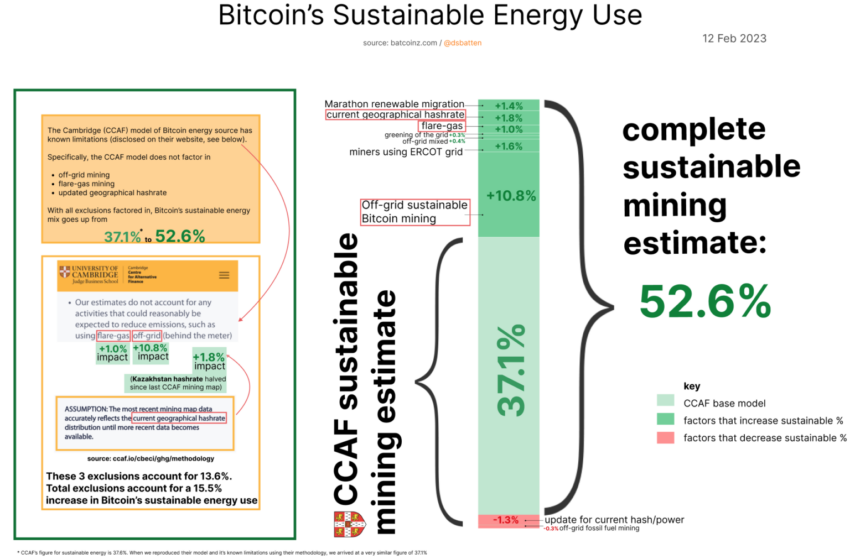On August 15, the International Monetary Fund (IMF) released a report titled “Carbon Emissions from Artificial Intelligence and Cryptocurrencies Are Soaring, and Tax Policy Can Help.” The report calls for significant increases in electricity bills for cryptocurrency miners and artificial intelligence data centers.
The International Monetary Fund believes that the proposed tax will encourage more sustainable practices and align these industries with global carbon reduction goals.
Rising cost of carbon: IMF proposes new tax proposals for cryptocurrencies and artificial intelligence
In the report, the IMF recommended a tax of $0.047 per kilowatt-hour to encourage the cryptocurrency mining industry to reduce emissions in line with global goals. The report also states that if the impact of air pollution on local health is taken into account, the proposed tax rate will increase to US$0.089. These adjustments will mean an 85% increase in average electricity costs for miners.
“Such a tax would increase global government revenue by $5.2 billion per year and reduce emissions by 100 million tons per year (approximately the same as Belgium’s current emissions),” the IMF noted.
Read more: How much electricity does Bitcoin mining use?
At the same time, it proposed a small tax cut of $0.032 per kilowatt-hour for artificial intelligence data centers. These low rates are due to the locations where these centers often choose to use green energy.
Reports show that the carbon footprint of these industries continues to grow and is expected to account for 2% of global electricity demand by 2022. It is expected to increase to 3.5% in 2025. According to the International Monetary Fund, this figure is equivalent to the current consumption of Japan, “the world’s fifth largest electricity user.”
“A recent IMF working paper found that cryptocurrency mining could produce 0.7% of global CO2 emissions by 2027. Extending this analysis to data centers (based on IEA estimates), the report added , by 2027, data center carbon emissions may reach 450 million tons, accounting for 1.2% of the global total. “
Greening Bitcoin Mining: Experts Question IMF Findings
But industry leaders sharply criticized the move. Daniel Batten, a Bitcoin environment analyst and member of the Marathon Digital Advisory Committee, called the IMF report misleading and insufficiently researched. He accused the International Monetary Fund of unfairly linking the carbon impact of artificial intelligence data centers to Bitcoin mining and ignoring the significant progress the cryptocurrency industry has made towards sustainability.
Batten also emphasized that the IMF’s approach oversimplified the issue and failed to distinguish between artificial intelligence data centers and cryptocurrency mining operations. Although both industries are energy-intensive, their energy consumption and environmental impacts differ.
“While there is no contemporary evidence in this report that Bitcoin mining increases carbon emissions, there is substantial evidence that carbon emissions from artificial intelligence data centers are increasing. […] So the article says, “Carbon emissions from AI data centers are increasing, Bitcoin equals AI.” This technique works, and may fool some people. But that’s simply not true,” Barton said.
Barton noted that the IMF report ignored the potential environmental benefits that cryptocurrency mining could have if it was managed responsibly. “Bitcoin mining emissions have not increased, while prices and computing power have increased,” he said, citing a report from the Digital Asset Institute.
“Until the IMF makes honest academic comparisons, avoids already discredited studies, uses more recent data sets, and acknowledges that scientific consensus acknowledges that the environmental externalities of Bitcoin mining are primarily positive, the institute’s report remains bottom line. “The level of research,” Barton said, “is low and should be ignored as not useful to policymakers and regulators.” “
Over the past few years, some jurisdictions, such as Venezuela and Iran, have banned cryptocurrency mining in their countries, citing power issues. However, today’s miners are actively pursuing efficient and sustainable Bitcoin mining, and some of them exploit excess or wasted energy.
Coinshare’s January report also supports this approach. The report states that Bitcoin mining continues to search for the cheapest energy sources. The industry often taps into stranded energy that cannot be easily integrated into existing grids through renewable energy projects in remote areas.
Learn more: Mining Bitcoin at Home: Is It Possible in 2024?

Therefore, the trend of using sustainable energy electricity for Bitcoin mining is increasing. Batten estimated in a previous report that approximately 52.6% of the energy currently consumed by Bitcoin mining operations is renewable energy. This figure is higher than the financial industry’s sustainable energy use rate, estimated at 40%.


